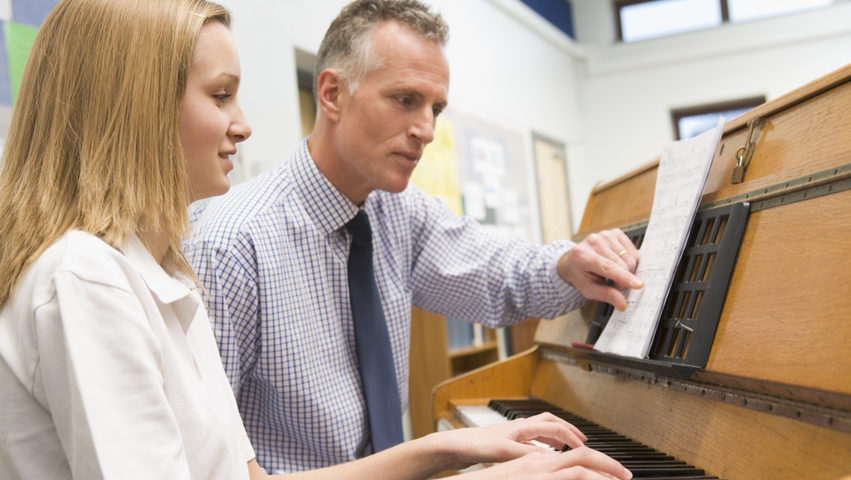4 Tips for Teaching Adults to Play the Piano

Teaching someone how to play a musical instrument is full of rewards. It’s exhilarating to see their face light up when they learn a new concept and there’s nothing like seeing someone learn to love and enjoy music the same way you do.
Teaching the teen and adult student in a class setting enriches their musical experience by providing a supportive and empathetic learning environment. In a group setting, students realize that some of the problems they have as beginners–such as coordination, reading and rhythm–are not unique just to themselves. They can share with class members and learn from each other.
Tip #1: Use music that is appealing and age-appropriate
Older beginners will relate to songs or melodies they are familiar with. We always feel more confident moving from the familiar to the unfamiliar. Choose a program that has appealing music as well as a wide variety of styles (e.g. classical, pop, folk, 12 bar blues, world themes, etc).
Give your adult student the option to pick some of the pieces that they want to learn. This will give them a unique sense of enthusiasm and feeling of ownership over the pieces. It may also inspire them to learn faster. Choosing the songs can even be a class “arranging” project.
Tip #2: Prepare ear training and coordination with layering
In a group setting, the teacher can provide ear training activities to anticipate musical flow, play a problem area as a repeated pattern (ostinato), and team and relay play to confirm coordination and give the student readiness for new fingerings, key centers, rhythms and harmonies. If students have the opportunity to familiarize themselves with musical patterning–melodic, harmonic and rhythmic–they will have a higher level of confidence and thus success in their own playing.
Tip #3: Provide guidelines for at-home practice
Give students guidelines for them to successfully develop their coordination, fingering skills and note reading fluency at home. After students have gained basic skills, encourage activities in composing, improvising and arranging. Set realistic goals and always provide adequate review of assignments. Have students share both their successes and their problem areas.
Tip #4: Have fun with your class!
Group piano lessons provide students the opportunity to have a social learning environment. Many students develop lifelong friendships. It’s important to follow specific curriculums, such as those that Harmony Road Music Course offers. Well thought-out lessons will make it easier for you to both teach and give tools for success to your students.
Regular music lessons with adults from all walks of life will make your job as a teacher fun and exciting. It will allow you to meet new people and make music, which can stimulate the brain and feed the soul.
For more ideas on facilitating lessons, feel free to ask us any questions.
